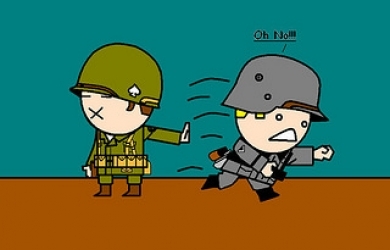evidence (n)
/ˈɛvədəns/
bằng chứng
one or more reasons for believing that something is or is not true

verdict (n)
/ˈvərdɪkt/
lời phán quyết
a decision that is made by a jury in court, stating if someone is considered guilty of a crime or not

prison (n)
/ˈprɪzn/
nhà tù
a building where people are kept as a punishment for a crime they have committed, or while they are waiting for trial

impose (v)
/ɪmˈpoʊz/
áp dụng
to introduce a new law, rule, tax, etc.; to order that a rule, punishment, etc. be used

arrest (v)
/əˈrest/
bắt giữ
to use legal authority to catch and take someone to a place where the person may be accused of a crime

convict (n)
/kənˈvɪkt/
người bị kết án tù, tù nhân
someone who is in prison because they are guilty of a crime

robbery (n)
/ˈrɑbəri/
cướp
the crime of stealing money or goods from a bank, store, person, etc., especially using violence or threats

lawyer (n)
/ˈlɔɪər/
luật sư
someone whose job is to give advice to people about the law and speak for them in court

oath (n)
/oʊθ/
lời tuyên thệ
a formal promise to do something or a formal statement that something is true

community (n)
/kəˈmju·nɪ·t̬i/
cộng đồng
the people living in one particular area or people who are considered as a unit because of their common interests, social group, or nationality

probation (n)
/proʊˈbeɪʃn/
án tù treo
a system that allows a person who has committed a crime not to go to prison if they behave well

drug (n)
/drʌɡ/
ma túy
an illegal substance that affects someone physically or mentally when they take it

































 Hãy đăng ký thành viên và đăng nhập để sử dụng chức năng này!
Hãy đăng ký thành viên và đăng nhập để sử dụng chức năng này!
Bình luận